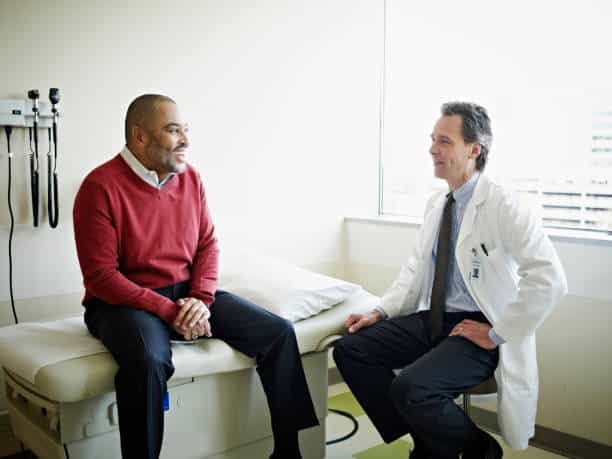
Liver disease is often called a “silent condition” because it can progress quietly, sometimes for years, without obvious symptoms. By the time many people realize something is wrong, the disease may already be advanced. However, there are several early warning signs that can indicate liver problems. Recognizing these symptoms and seeking medical advice promptly can make a significant difference in treatment outcomes.
Below, we explore some of the most common symptoms of liver disease that can go unnoticed.
1. Fatigue and Weakness
One of the earliest and most common signs of liver disease is persistent fatigue. People may feel tired even after a full night’s sleep, or they may experience an unusual sense of weakness throughout the day.
This fatigue can stem from several liver-related issues:
-
Anemia: A shortage of healthy red blood cells can make you feel drained.
-
Low blood sugar: The liver helps regulate blood sugar levels, so dysfunction can lead to energy dips.
-
Toxin buildup: A damaged liver struggles to filter toxins effectively, which can leave you feeling sluggish.
While fatigue can have many causes, unexplained and long-lasting tiredness should not be ignored.
2. Abdominal Pain and Swelling
Liver disease can also cause discomfort in the abdominal area. This may present as a dull ache in the upper right side of the stomach, where the liver is located.
More severe cases may involve abdominal swelling, known as ascites, which occurs when fluid accumulates in the abdomen. This swelling may cause the stomach to appear bloated and can make everyday activities—like bending or even walking—more difficult.
If abdominal pain or swelling is persistent, it’s important to get checked by a healthcare provider.
3. Nausea and Vomiting
The liver plays a crucial role in digesting food, especially fatty foods. When the liver isn’t functioning properly, individuals may experience nausea or vomiting, particularly after eating greasy or fried meals.
This happens because the body struggles to break down fats efficiently, leading to digestive discomfort. While occasional nausea can happen for many reasons, ongoing or unexplained nausea should raise concern.

4. Jaundice
Perhaps the most well-known sign of liver disease is jaundice, which causes a yellowish tint in the skin and the whites of the eyes.
Jaundice occurs when bilirubin—a yellow substance produced when red blood cells break down—builds up in the bloodstream. A healthy liver normally processes and removes bilirubin, but when the liver is compromised, bilirubin accumulates.
If you or someone you know develops sudden yellowing of the skin or eyes, it should be treated as a warning sign and evaluated by a medical professional immediately.
5. Dark Urine
Changes in urine color can also signal liver problems. Dark urine, ranging from tea-colored to cola-colored, can indicate excess bilirubin in the body.
Since dark urine can also result from dehydration or certain medications, it’s important to consider whether other symptoms of liver disease are present at the same time.
6. Itchy Skin
Persistent itchiness, especially at night, can be another subtle symptom of liver disease. This occurs due to the buildup of bile acids in the bloodstream.
The itching may not always come with a rash or visible irritation, making it confusing for those experiencing it. If the itch is widespread, persistent, and unexplained, liver function could be the underlying cause.

7. Loss of Appetite and Unexplained Weight Loss
When the liver isn’t functioning properly, it can affect appetite and digestion. People with liver disease often report a loss of appetite, which over time can lead to unintended weight loss.
This symptom is particularly concerning because it can indicate that the body isn’t getting the nutrients it needs. Weight loss combined with other liver-related symptoms should always be taken seriously.
8. Pale or Bloody Stools
Changes in stool color are another red flag for liver problems:
-
Pale or white-colored stools: This may happen when bile flow is reduced or blocked.
-
Black or bloody stools: This could signal internal bleeding, possibly linked to liver damage.
While stool changes can occur due to diet or other health conditions, recurring abnormalities should prompt medical evaluation.
Why Early Detection Matters
One of the most important things to remember is that these symptoms do not automatically mean someone has liver disease. Many of them can be linked to other health issues, ranging from minor to serious.
However, because liver disease can progress silently, noticing these warning signs early—and seeking medical evaluation—can make a major difference. Early detection allows for:
-
Timely treatment to slow or stop progression.
-
Lifestyle adjustments such as dietary changes, reduced alcohol intake, and weight management.
-
Better outcomes, since many forms of liver damage are reversible in their early stages.

When to See a Doctor
If you experience persistent symptoms such as fatigue, abdominal pain, jaundice, or changes in urine or stool, it’s essential to consult a healthcare provider. A doctor may recommend blood tests, imaging scans, or other diagnostic procedures to determine whether your liver is functioning properly.
Ignoring these symptoms can allow liver damage to worsen, sometimes leading to life-threatening conditions such as cirrhosis or liver failure.
Final Thoughts
The liver is one of the body’s most vital organs, playing a central role in detoxification, metabolism, and digestion. Because liver disease often develops silently, paying attention to the body’s subtle signals is key.
Symptoms like fatigue, abdominal swelling, nausea, jaundice, dark urine, itchy skin, loss of appetite, and stool changes may point to underlying liver problems. While these signs don’t always confirm liver disease, they are important warning flags that should not be ignored.
If you notice any combination of these symptoms, scheduling a medical checkup is the best step toward protecting your health. Early detection and treatment can make all the difference in maintaining a healthy liver—and a healthier life overall.









